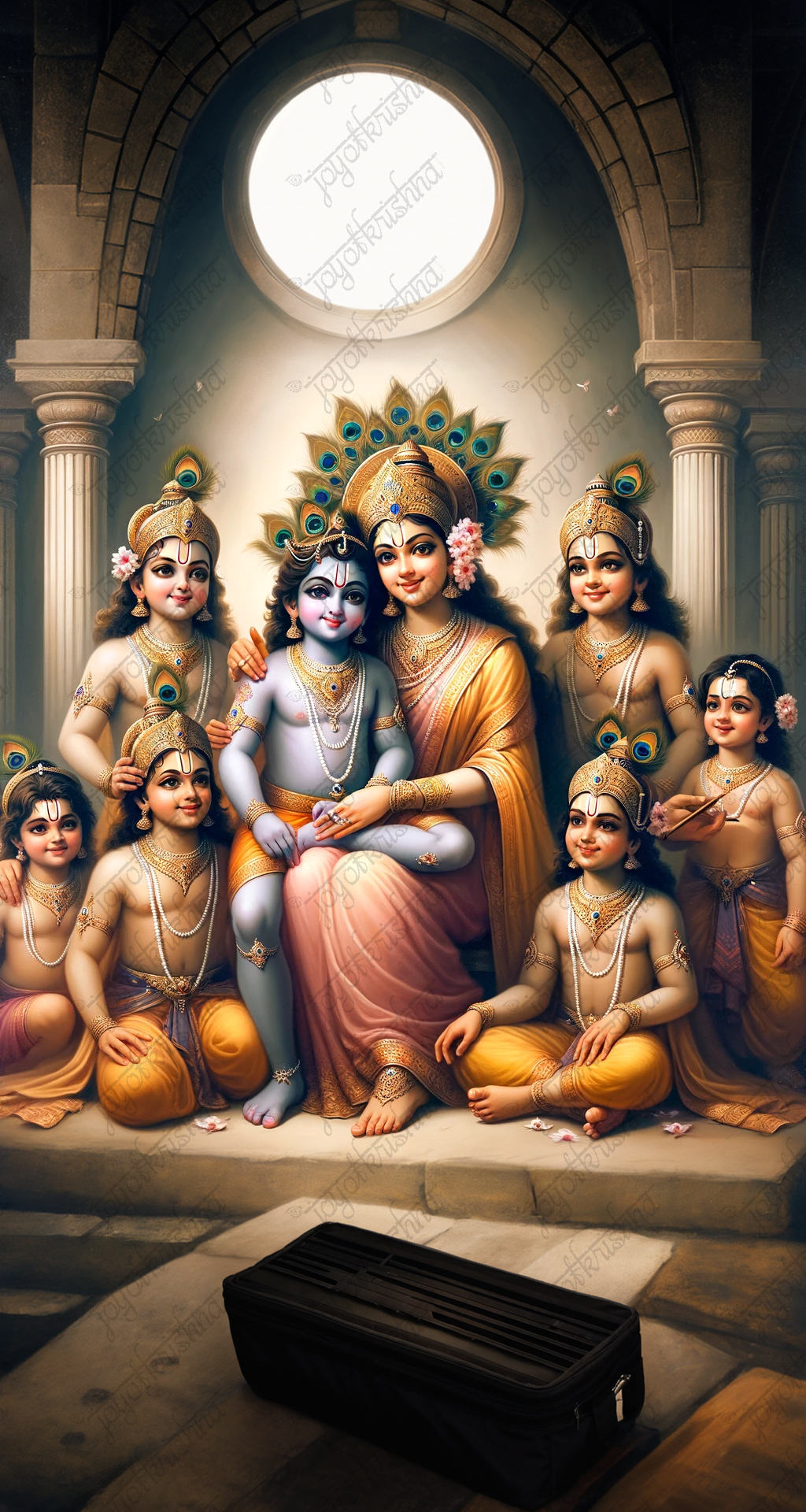
In the realm of Hindu mythology, one deity stands out for his enigmatic smile, his mesmerizing flute, and his profound teachings – Lord Krishna, the eighth avatar of Lord Vishnu. Born in the city of Mathura, Krishna’s arrival on this earth was marked by a dramatic turn of events, as his uncle King Kamsa sought to kill him, fearing a prophecy that foretold his own demise at the hands of his nephew. However, fate had other plans, and Krishna’s father Vasudeva managed to smuggle the infant out of the city, leaving him in the care of a humble cowherd named Nanda in the nearby village of Gokul. As Krishna grew up amidst the rolling hills and verdant pastures of Gokul, his divine nature began to manifest, and he regaled his friends and family with tales of his adventures, of the demons he slew, and the miracles he performed. Yet, Krishna’s most significant contribution to Hindu philosophy lies in the Bhagavad Gita, a treatise on the nature of reality, duty, and the path to spiritual enlightenment, which he imparted to his friend and disciple Prince Arjuna on the eve of the great battle of Kurukshetra. In this seminal text, Krishna expounds on the concept of Nishkama Karma, or selfless action, urging individuals to perform their duties without attachment to the outcome, and to cultivate a sense of detachment and equanimity in the face of life’s trials and tribulations. Through his teachings, Krishna offers a vision of a world where individuals can transcend the limitations of the ego and the material world, and connect with the divine that resides within themselves and all beings. As the embodiment of divine love and wisdom, Krishna continues to inspire and captivate devotees around the world, his legend a testament to the power of faith, devotion, and the human spirit’s capacity for transcendence. His iconic image, with its gentle smile and piercing gaze, seems to whisper secrets of the universe, inviting us to embark on a journey of self-discovery and spiritual exploration. As we delve into the mysteries of Krishna’s life and teachings, we find ourselves drawn into a world of wonder, awe, and reverence, where the boundaries between the human and the divine dissolve, and the infinite possibilities of the universe unfold before us like a lotus flower blooming in the sun. In the stillness of the night, when the stars twinkle like diamonds in the sky, and the world is bathed in the soft glow of moonlight, we can almost hear the haunting melody of Krishna’s flute, beckoning us to follow him on a path of discovery, growth, and transformation, a journey that promises to reveal the hidden treasures of our own hearts and the secrets of the universe. As the Bhagavad Gita reminds us, “The one who has controlled the mind and senses, and has realized the Self, is eligible to attain the state of supreme peace and liberation.” And so, as we embark on this journey with Krishna as our guide, we come to realize that the ultimate goal of human existence is not to accumulate wealth, power, or fame, but to attain that state of supreme peace and liberation, where the individual self merges with the universal Self, and we become one with the infinite.